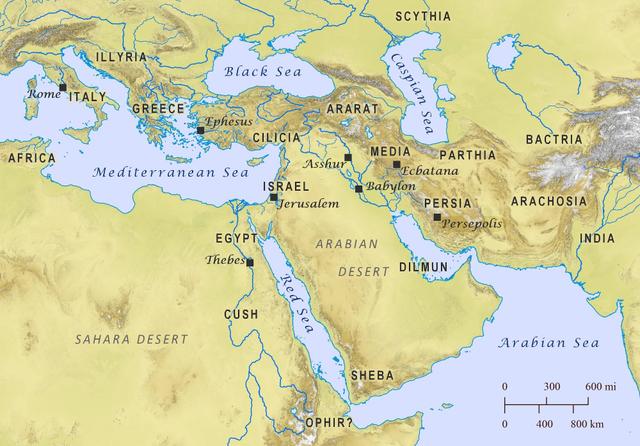Melchizedek was greater than Abraham and greater than other priests because Abraham gave him a tenth of the spoils and because Abraham received a blessing from Melchizedek.
Melchizedek is greater than the Levitical priests. This is demonstrated by Abraham’s tithe to, and the blessing from, Melchizedek.
The Pauline Author instructs his readers to observe how great this man was to whom Abraham, the patriarch, gave a tenth of the choicest spoils (v 4). After Abraham, who had the promises of God, gave a tenth of the choicest spoils to Melchizedek, Melchizedek blessed him. Melchizedek’s blessing of Abraham showed his superiority over him, because without any dispute the lesser is blessed by the greater (v 7).
Melchizedek was able to rightfully do so despite not being of the tribe of the Levites. The author explains that those indeed of the sons of Levi who receive the priest’s office have commandment in the Law to collect a tenth from the people, that is, from their brethren, although these are descended from Abraham. But the one whose genealogy is not traced from them collected a tenth from Abraham and blessed the one who had the promises (vv 5–6).
Melchizedek is also greater than the Levite priests because the Levite priests were constrained by death: In this case mortal men receive tithes, but in that case one receives them, of whom it is witnessed that he lives on (v 8). Melchizedek had no recorded death or successor, so he metaphorically remains a priest forever.
The author continues to reinforce how much greater Melchizedek was over Abraham by explaining how Levi, who received tithes from the rest of Israel, paid tithes to Melchizedek (through Abraham). By proxy, the Levitical line of priests (who descended from Abraham) tithed to Melchizedek: And, so to speak, through Abraham even Levi, who received tithes, paid tithes, for he was still in the loins of his father when Melchizedek met him (vv 9–10).
Since Christ was declared a priest after the order of Melchizedek (Psalm 110:4), and because Melchizedek is greater than the Levite priests, then Christ is also greater than the Levite priests. The following verses point out that since this new high priest is greater than the Levite priests, what Christ offers must be much greater than what the Levitical priesthood offers.
The Pauline Author is laying the foundation with this argument that underlies the entire letter: obedience of faith with a clear conscience is what really matters in living a life of righteousness. Religious observance has its place, but it does not gain righteousness. The experience of righteousness comes by living by faith.
Biblical Text
4 Now observe how great this man was to whom Abraham, the patriarch, gave a tenth of the choicest spoils. 5 And those indeed of the sons of Levi who receive the priest’s office have commandment in the Law to collect a tenth from the people, that is, from their brethren, although these are descended from Abraham. 6 But the one whose genealogy is not traced from them collected a tenth from Abraham and blessed the one who had the promises. 7 But without any dispute the lesser is blessed by the greater. 8 In this case mortal men receive tithes, but in that case one receives them, of whom it is witnessed that he lives on. 9 And, so to speak, through Abraham even Levi, who received tithes, paid tithes, 10 for he was still in the loins of his father when Melchizedek met him.
Check out our other commentaries:
-
Philemon 1:20-21 meaning
Paul sums up his requests and asks Philemon to refresh his heart. He expresses confidence that Philemon will do even more than what Paul asked...... -
Acts 3:11-16 meaning
The people who witnessed the healing of the lame beggar follow Peter and John. Peter confronts them on why they should be amazed. Don’t they...... -
Acts 1:12-14 meaning
The disciples return to Jerusalem and wait. The eleven apostles are there, as are the women who had closely followed Jesus, and His mother Mary,...... -
Hebrews 4:6-9 meaning
The second generation entered God’s rest when they crossed over and possessed the land. But there remains a rest (inheritance) other than the one that...... -
Matthew 9:35-38 meaning
Jesus feels compassion for the people of Galilee. He tells His disciples that the harvest for the gospel is bountiful, but there are few workers.......



